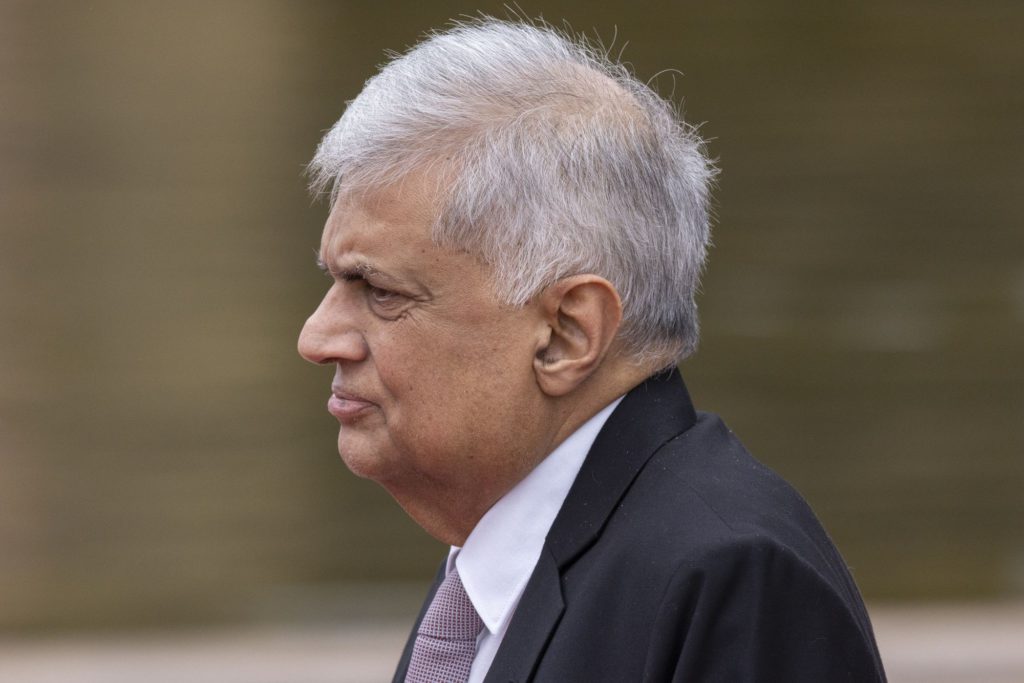Sri Lanka’s president Ranil Wickremesinghe said the bankrupt country has taken difficult measures and is pushing closer toward securing an International Monetary Fund loan to address the worst economic crisis in its independent history.
(Bloomberg) — Sri Lanka’s president Ranil Wickremesinghe said the bankrupt country has taken difficult measures and is pushing closer toward securing an International Monetary Fund loan to address the worst economic crisis in its independent history.
Wickremesinghe laid out his policies for recovery while calling for unity during his so-called Throne Speech at a new session of parliament Wednesday, marking the 75th year of independence from British rule, which it commemorated on Feb.
4.
“We have now reached the final stage of negotiations with the IMF. We have no other way but this process,” the president told parliament.
Since coming to power after former president Gotabaya Rajapaksa resigned in May following weeks of street protests, Wickremesinghe has been pushing toward the $2.9 billion IMF loan program to help the island nation out of its economic malaise.
Western lenders on Tuesday stepped up pressure on China to stop playing solo and join the international effort to provide debt relief to Sri Lanka amid growing fears that Beijing’s unilateral positioning might delay and complicate the financial rescue of the South Asian nation like in the case of Zambia.
“We are in direct discussions with China,” Wickremesinghe said on Wednesday.
“We have received positive responses from all parties. We are now working towards unifying the approaches of other countries and that of China.”
Wickremesinghe has also made some efforts at political reforms to curb sweeping powers granted to the president in a bid to calm public anger that climaxed with the ousting of Rajapaksa and called for unity among political parties to foster reconciliation, given it’s been more than a decade since the end of the island’s long-drawn war with the Tamil Tiger rebels.
Wickremesinghe summoned an all-party conference on Jan.
26 to discuss implementing a so-called 13th amendment to the constitution that calls for devolving powers to the provinces — a bid to promote reconciliation and appease the international community.
“We expect to devolve power within a unitary state,” Wickremesinghe said in his speech.
“There will be no division of the country,” he said.
In his 2023 budget, the president, who also doubles up as the finance minister, sharply increased taxes and pledged to curtail spending in a bid to narrow the fiscal deficit, wean the economy away from populist policies and unlock the IMF funds.
Sri Lanka’s foreign currency reserves have been below $2 billion for months.
The nation has relied on re-purposed funds and aid from friendly countries to ease crippling shortages and stay afloat amid a deep recession, inflation that’s above 50% and borrowing costs that jumped 950 basis points last year.
“Due to the measures taken, we have been successful in reducing the burden gradually.
Now there is stability in the economy. However it is not yet over,” the president said.
While Wickremesinghe has been credited for bringing about some normalcy to the country, he is criticized for aligning with the Rajapaksas and clamping down on protests.
The leader depends on the support of lawmakers in Rajapaksas’ still-in-power Sri Lanka Podujana Peramuna party.
The administration will face a crucial test of its approval when the nation holds local government elections on March 9.
Opposition factions and protesters have also been calling for presidential and parliamentary elections to vote in a government with a fresh mandate.
–With assistance from Asantha Sirimanne.
(Updates throughout with Wickremesinghe’s speech)
More stories like this are available on bloomberg.com
©2023 Bloomberg L.P.










